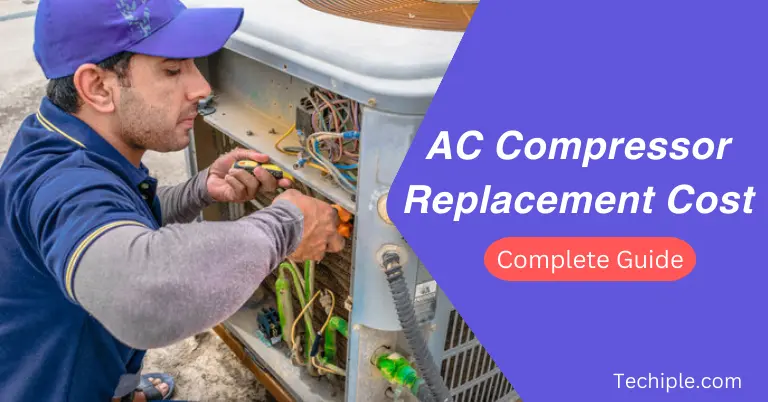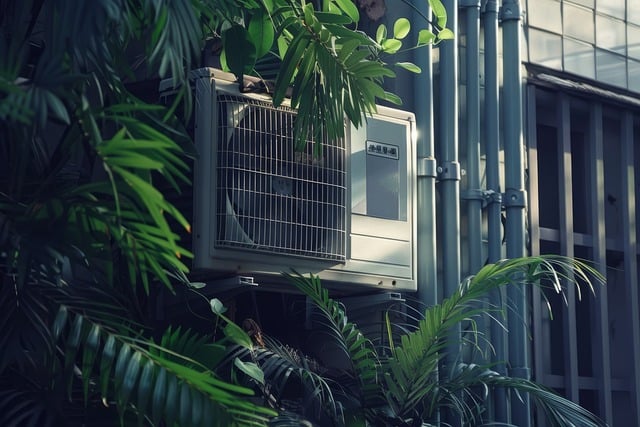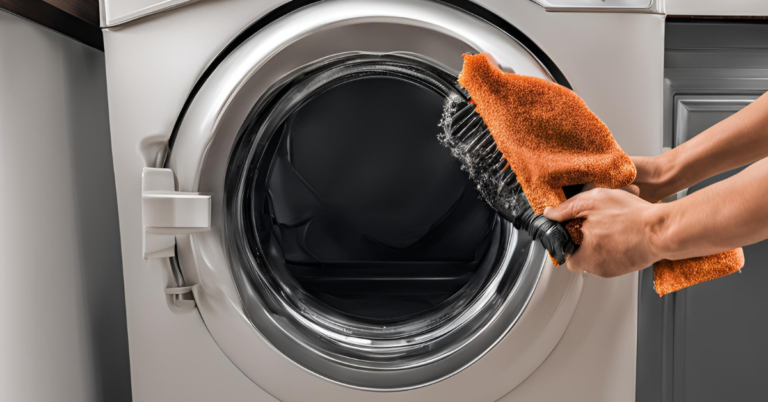AC Compressor Replacement Cost: Avoid Expensive Repairs

An air conditioner is essential for maintaining comfort during hot summer months. However, like any mechanical system, it requires periodic maintenance and, at times, replacement of critical components. One of the most important and expensive parts of an air conditioning unit is the compressor. If your AC isn’t cooling effectively or making unusual noises, a faulty compressor might be the culprit.
In this comprehensive guide, we’ll cover everything you need to know about AC compressor replacement costs. From factors affecting the price to tips on saving money, this article is designed to help you make an informed decision.
What Is an AC Compressor and Why Is It Important?
The AC compressor is the heart of your air conditioning system. It is responsible for circulating refrigerant between the evaporator and condenser coils, enabling the heat exchange process that cools your home. Without a functioning compressor, your air conditioning system cannot operate efficiently or effectively.
Key Functions of an AC Compressor:
- Heat Transfer: Compresses refrigerant to release absorbed heat outdoors.
- Pressure Regulation: Maintains the pressure needed for refrigerant flow.
- Cooling Efficiency: Ensures even and effective cooling throughout your home.
Because the compressor is such a critical component, replacing it is both a significant repair and an investment in your AC system’s longevity.
Signs Your AC Compressor Needs Replacement
Before delving into replacement costs, it’s important to recognize the symptoms of a failing compressor. Knowing these signs can help you act promptly, preventing further damage to your system:
If you notice any of these issues, consult a licensed HVAC technician for a professional diagnosis.
How Much Does an AC Compressor Replacement Cost?

The cost of replacing an AC compressor can vary widely depending on several factors. On average, you can expect to pay between $800 and $3,000, including parts and labor. Let’s break this cost down further:
1. Compressor Cost
The compressor itself typically costs between $400 and $1,800, depending on the brand, size, and type of compressor required.
- Residential Units: Most home AC compressors cost between $500 and $1,200.
- Commercial Units: Larger units for commercial spaces can range from $1,500 to $3,000.
2. Labor Costs for Replacement
Labor costs for replacing an AC compressor usually range from $300 to $600. This includes removing the faulty compressor, installing the new one, and testing the system.
3. Refrigerant Costs
If refrigerant needs to be recharged during the repair, this can add an additional $100 to $300 to the total cost, depending on the type and amount required.
4. Warranty Coverage
If your AC unit is still under warranty, the AC compressor replacement cost may be covered by the manufacturer, leaving you responsible only for labor costs. Without a warranty, you’ll need to pay for both parts and labor.
Factors Affecting AC Compressor Replacement Cost
Several variables influence the final cost of replacing an AC compressor. Understanding these factors can help you anticipate expenses and make cost-effective choices:
- Type of Compressor: Different types of compressors have varying price points
- Single-Stage Compressors: These are the most affordable but less energy-efficient.
- Two-Stage Compressors: More expensive but offer better energy efficiency and cooling performance.
- Variable-Speed Compressors: The most expensive option, providing superior energy efficiency and temperature control.
- AC Unit Size: Larger AC units require more powerful compressors, which are typically more expensive.
- Brand and Model: High-end brands or models with advanced features may come with a higher price tag.
- Age of the System: Older AC units may require additional modifications or parts to accommodate a new compressor, increasing labor costs.
- Location and Accessibility: If the compressor is located in a hard-to-reach area, such as a rooftop or tight space, labor costs may rise due to increased complexity.
- Seasonal Demand: HVAC repair costs often increase during peak seasons (summer and winter) due to high demand for services.
Should You Replace the Compressor or the Entire Unit?
Replacing an AC compressor is a significant investment, and in some cases, it might make more sense to replace the entire AC unit instead. Consider the following factors:
1. Age of the System
- If your AC unit is more than 10–15 years old, replacing the entire system may be more cost-effective in the long run.
- Newer systems are more energy-efficient, offering lower operating costs.
2. Extent of Damage
- If multiple components of your AC unit are failing, a full replacement might be the better option.
- Replacing just the compressor may not address underlying issues in an older system.
3. Warranty Coverage
- If the compressor is under warranty, replacing it is typically more affordable.
- If the warranty has expired, compare the cost of a compressor replacement to the cost of a new unit.
Tips to Save Money on AC Compressor Replacement
Replacing an AC compressor can be costly, but these tips can help you minimize expenses:
How to Extend the Life of Your AC Compressor
Proper maintenance is key to preventing premature compressor failure. Follow these tips to keep your compressor running smoothly:
Conclusion
The cost of replacing an AC compressor varies depending on the type of compressor, labor costs, and the specific circumstances of your system. On average, you can expect to spend between $800 and $3,000 for this repair. While it’s a significant expense, maintaining a functional AC system is essential for your comfort and energy efficiency.
By understanding the factors that influence replacement costs and following preventive maintenance tips, you can maximize the lifespan of your AC compressor and avoid unnecessary expenses. If you’re facing compressor issues, consult a qualified HVAC technician to explore your options and make an informed decision.






